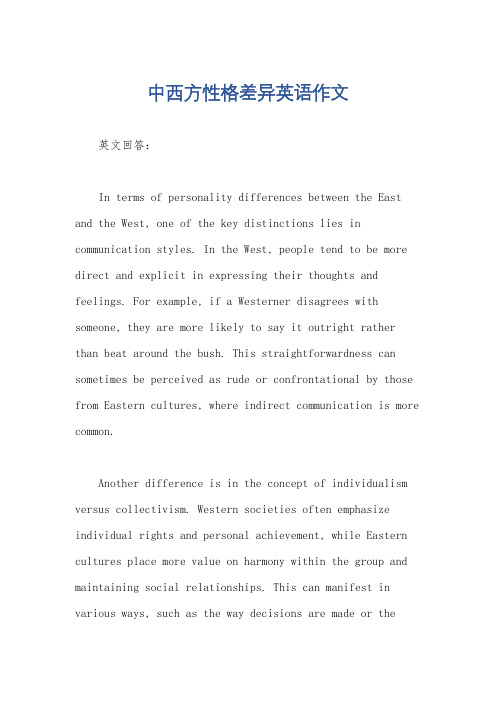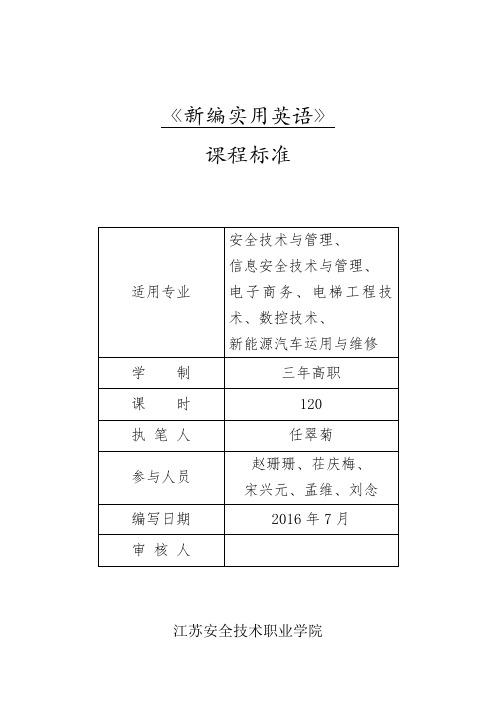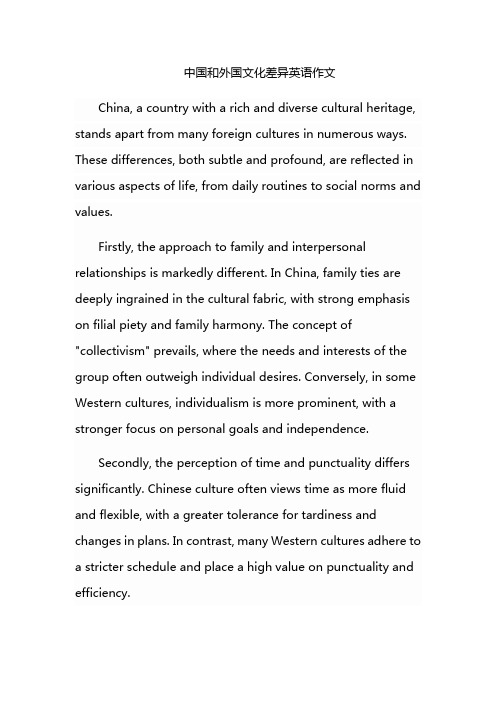Unit 4 Concept of Time and Punctuality
新编实用英语综合教程1 Unit 4 Concept of Time and Punctuality

free You are welcome all right make an appointment
fine
Making an appointment
1) Talking About a Flight Timetable Bob is calling a receptionist for information about flights from Beijing to Hong Kong. Receptionist: CAAC information. Can I help you?
Bob: Yes. Is there a flight to Hong Kong on Tuesday, the 14th? Receptionist: Yes, there is.
Bob: Is that a direct flight? Receptionist: No, you have to change in Guangzhou.
Mr. Johnson: Oh, really? You: Yes. 2 (告诉他中餐厅在八层,西餐厅在九层) ___T_h_e_C__h_in_e_s_e_ __r_e_s_t_a_u_r_a_n_t _is__o_n_t_h_e__e_ig_h_t_h_f_l_o_o_r_a_n_d__th_e__W_e_s_t_e_r_n_-s_t_y_l_e_ __r_e_s_t_a_u_r_a_n_t _is__o_n_t_h_e__n_in_t_h_f_l_o_o_r._.
2) Talking About Mark's Schedule Joe: Have you been busy recently?
Mark: Yes, and I have a busy schedule this week, too. This morning I need to write a business report and this afternoon at 1:30 I'll discuss the report with the general manager.
对于时间的认识英语版作文

对于时间的认识英语版作文Title: Understanding Time。
Time is a concept that has intrigued humanity for centuries. It is both a fundamental aspect of our existence and a perplexing mystery. From the ticking of a clock to the rhythms of the seasons, time governs our lives in profound ways. In this essay, we will explore various dimensions of time and delve into its significance in our lives.First and foremost, time is a measure of change. It delineates the sequence of events, marking the passage from one moment to the next. From the rising of the sun to the aging of a person, time manifests itself throughtransitions and transformations. It serves as a framework within which our experiences unfold, creating a sense of order and continuity in the flux of existence.However, time is not merely a linear progression. Itpossesses a subjective quality that varies from person to person and from culture to culture. The perception of time can be influenced by factors such as age, context, and individual temperament. For instance, children often perceive time differently than adults, with hoursstretching out endlessly during moments of anticipation and contracting swiftly during moments of enjoyment. Similarly, individuals from different cultural backgrounds may have distinct attitudes toward punctuality and scheduling, reflecting diverse conceptions of time's value and significance.Moreover, time is deeply intertwined with memory and nostalgia. Our recollections of the past are filtered through the lens of time, shaping our identities and influencing our present actions. Moments of joy or sorrow become etched in our memories, imbued with a sense of temporality that lends them meaning and poignancy. Nostalgia, in particular, serves as a poignant reminder of the irretrievable nature of time, evoking a bittersweet longing for moments gone by.Furthermore, time plays a crucial role in shaping our aspirations and goals. The future, with its infinite possibilities and uncertainties, beckons us forward,driving us to strive and achieve. Whether we are pursuing personal ambitions or societal progress, our endeavors are invariably bound by the constraints of time. The awarenessof time's fleeting nature can imbue our actions with asense of urgency, compelling us to seize the moment and make the most of our limited time on Earth.In the realm of science and philosophy, time remains a subject of intense scrutiny and debate. Physicists grapple with the nature of time, exploring its relationship with space and its role in the fundamental laws of the universe. Philosophers ponder its metaphysical implications, probing the nature of existence and the elusive concept of eternity. Through these interdisciplinary inquiries, we gain deeper insights into the mysteries of time and its profound implications for our understanding of reality.In conclusion, time is a multifaceted phenomenon that permeates every aspect of our lives. It serves as a measureof change, a repository of memories, and a catalyst for aspirations. Its subjective nature, cultural significance, and philosophical implications continue to fascinate and perplex us. As we navigate the currents of time, let us cherish each moment, mindful of its fleeting nature and infinite possibilities. For in the tapestry of existence, it is our experiences of time that lend richness and depth to the human journey.。
新编实用英语综合教程-第一册-U4-Punctuality-pays

12
________ for class.p9unc.To know Americans attitude to time 2.To describe the real story happened to the author 3.To grasp the tips of being punctual 4.To acquire some key words and expressions
Punctuality Pays!
Different un_d_er_st_an_d_in_g of p u_n_c_tu_a_lityannoys American
Introduction (para. 1-2)
Being late for a b_u_s_in_es_s_ meeting with an _In_d_ia_n_ team
3.What are the tips for behavior about appointment and punctuality?(5-6)
Which clock represents Chinese view of time?
1.What is Americans’ attitude towards time?(1-2)
(从下午1:30到3:00有空)
3. A:_D_o_y_o_u_h_a_v_e_f_l_ig_h_t_s_t_o_H_o_n_g_K_o_ng______ on Tuesday? (有去香港的航班吗)
B:Ye(s你, b需u要t _在_y_o广u__州h_a转v_e_机_to_)_c_ha_n_g_e_i_n_G_u_a_ng_z_h_ou_____. A:What’s the departure time? B:At 2:15 p.m. A: _____________________? (飞机什么时间到达) B: _W_h_a_t’s___th_e__ar_r_iv.a(l下t午ime五点四十)
英国人来到中国可能遇到的文化冲击英语作文

英国人来到中国可能遇到的文化冲击英语作文When British people travel to China, they are likely to experience various cultural shocks that can be quite different from what they are accustomed to in their home country. From language barriers to customs and traditions, the cultural gap between the two nations can be quite significant. Understanding and being prepared for these cultural differences can help British visitors have a more enjoyable and enriching experience in China.One of the most obvious cultural shocks for British travelers in China is the language barrier. While English is widely spoken in many parts of the world, it is not as commonly used in China, especially in smaller cities and rural areas. The Chinese language, with its complex writing system and tonal pronunciations, can be extremely challenging for English speakers to learn and understand. This can make simple tasks such as ordering food, asking for directions, or engaging in basic conversations quite difficult. British visitors may find themselves relying heavily on translation apps, phrasebooks, orthe assistance of local guides to navigate their way through daily activities.Another significant cultural difference that British people may encounter in China is the collectivist nature of Chinese society. In contrast to the more individualistic culture of the UK, Chinese culture places a strong emphasis on the collective good and the importance of family and community. This can manifest in various ways, such as the prevalence of group activities, the expectation of conformity, and the importance placed on maintaining social harmony. British visitors, who may be more accustomed to a more individualistic approach, may find this cultural shift challenging and may need to adjust their behavior and expectations accordingly.The concept of personal space is another area where British and Chinese cultures can differ significantly. In China, personal space is often perceived differently, with people standing closer together and engaging in more physical contact during conversations. This can be particularly jarring for British visitors who are used to maintaining a more defined personal bubble. Additionally, the crowded nature of many Chinese cities and the high population density can further amplify this sense of reduced personal space, which can be overwhelming for some British travelers.Dining etiquette is another area where British and Chinese culturesdiverge. In China, meal times are often seen as opportunities for social interaction and bonding, with the sharing of dishes and the use of communal chopsticks being common practices. This can be quite different from the more individualized dining experience that British people may be accustomed to. Additionally, the variety of unfamiliar Chinese cuisines and the use of ingredients that may be uncommon in British cuisine can also be a source of cultural shock for British visitors.The concept of time and punctuality is another area where British and Chinese cultures can differ. In China, a more relaxed attitude towards time is often observed, with a greater emphasis on flexibility and a willingness to adapt to changing circumstances. This can be in contrast to the more rigid adherence to schedules and punctuality that is often expected in the UK. British visitors may need to adjust their expectations and be more adaptable to the more fluid approach to time in China.The role of hierarchy and respect for authority is another cultural aspect that British travelers may encounter in China. Chinese culture places a strong emphasis on respect for elders, social status, and hierarchical structures, which can be quite different from the more egalitarian approach that is often found in the UK. This can manifest in various ways, such as the expectation of deference to those in positions of power, the importance of proper etiquette and protocol,and the potential for more formal and structured interactions.Finally, the differences in social norms and customs can also be a source of cultural shock for British visitors to China. From the use of public restrooms and the etiquette of gift-giving to the prevalence of spitting and the acceptance of smoking in public spaces, British travelers may find themselves navigating a very different set of social expectations and behaviors.Overall, the cultural differences between the UK and China can be quite significant, and British travelers need to be prepared to embrace and adapt to these differences in order to have a more enriching and enjoyable experience. By being open-minded, respectful, and willing to learn about Chinese culture, British visitors can not only navigate the cultural shocks but also gain a deeper appreciation for the richness and diversity of Chinese civilization.。
中西方性格差异英语作文

中西方性格差异英语作文英文回答:In terms of personality differences between the East and the West, one of the key distinctions lies in communication styles. In the West, people tend to be more direct and explicit in expressing their thoughts and feelings. For example, if a Westerner disagrees with someone, they are more likely to say it outright rather than beat around the bush. This straightforwardness can sometimes be perceived as rude or confrontational by those from Eastern cultures, where indirect communication is more common.Another difference is in the concept of individualism versus collectivism. Western societies often emphasize individual rights and personal achievement, while Eastern cultures place more value on harmony within the group and maintaining social relationships. This can manifest in various ways, such as the way decisions are made or theimportance placed on personal success versus the success of the community.Furthermore, attitudes towards time and punctuality can vary between East and West. In Western cultures, being on time is seen as a sign of respect and professionalism. However, in some Eastern cultures, being a few minutes late is not as big of a deal and can be more socially acceptable.Overall, these cultural differences in personality can lead to misunderstandings and miscommunications between individuals from the East and the West. It's important tobe aware of these differences and approach interactionswith an open mind and willingness to learn from each other.中文回答:中西方性格差异的一个关键区别在于沟通方式。
三年制大专英语课程标准

《新编实用英语》课程标准江苏安全技术职业学院《新编实用英语》课程标准一、概述(一)课程性质与任务《新编实用英语》课程是为了满足高等职业教育阶段各专业的一门公共必修课程。
通过两个学期的教学,完成《新编实用英语综合教程》一至二册的教学,旨在激发学生学习英语的兴趣,了解东西方跨文化差异,使学生掌握一定的英语基础知识和提高听、说、读、写、译五大语言运用能力。
培养学生的实践、参与和创新能力,使学生学会用英语进行日常和简单业务的交际,为他们的终身学习和发展打好基础。
(二)课程基本理念本课程采用单元模块化的设计理念,以语音听说练习并结合情景模拟训练,并基于职业岗位设臵为导向,突出学生听说能力训练,提高学生岗位适应及发展能力,强调“适用、实用、够用、会用”等实际需要。
实施以“翻转课堂”为主的教学模式,突出学生自主学习的重要性,培养学生英语学习目标和兴趣,提高学生职业发展实际需要。
(三)课程设计思路本课程教学内容基于单元内的“听、说、读、写、译”五个部分整合成“说听、阅读、译写”三大模块,每个模块均由一至两个情境组成,并将情境与职业场景相结合,力求体现职业导向设计、生活场景融合的教学理念。
其内容的选择更贴合职业发展需求和生活场景需要。
本课程教学实施主要采取“翻转课堂”教学模式,强调学生主体的自觉性,每个情境学习前均使用导学案,并利用任务驱动法和问题导入法,提出学习目标和学习任务,引导学生自行解决教学重难点,针对学生疑问在课堂上共同探讨具体解决方案,提高学生英语技能,指导学生自我评价。
教师根据课堂表现及学生理解程度,给出及时性评价。
二、课程目标(一)总目标通过本课程教学,使学生熟悉英语国家有关日常生活、兴趣爱好、风俗习惯、社交礼仪等方面的话题,在日常生活中能恰当理解和表达介绍、问候、感谢、致歉、告别、指路、天气、学习、爱好、饮食、健康、邀请、购物、旅游、求职等交际功能。
(二)具体目标本课程在加强英语语言基础知识和基本技能训练的同时,重视培养学生实际使用英语进行交际的能力。
中国和外国文化差异英语作文

中国和外国文化差异英语作文China, a country with a rich and diverse cultural heritage, stands apart from many foreign cultures in numerous ways. These differences, both subtle and profound, are reflected in various aspects of life, from daily routines to social norms and values.Firstly, the approach to family and interpersonal relationships is markedly different. In China, family ties are deeply ingrained in the cultural fabric, with strong emphasis on filial piety and family harmony. The concept of "collectivism" prevails, where the needs and interests of the group often outweigh individual desires. Conversely, in some Western cultures, individualism is more prominent, with a stronger focus on personal goals and independence.Secondly, the perception of time and punctuality differs significantly. Chinese culture often views time as more fluid and flexible, with a greater tolerance for tardiness and changes in plans. In contrast, many Western cultures adhere to a stricter schedule and place a high value on punctuality and efficiency.Furthermore, the treatment of elders and authority figures differs. In China, respect for elders and authority is deeply ingrained. This respect is not just a social norm but also a reflection of traditional values. In contrast, some Western cultures may view authority figures with a more critical eye, encouraging questioning and challenging conventional wisdom.Lastly, dietary habits and cuisines are another stark contrast. Chinese cuisine, with its vast array of flavors and cooking techniques, is renowned worldwide. The importance of food in Chinese culture is reflected in its role in festivals, celebrations, and even daily greetings. Foreign cultures, on the other hand, may have their own unique culinary traditions but may not share the same level of reverence for food as in China.In conclusion, the cultural differences between China and foreign countries are vast and multifaceted. These differences, while sometimes leading to misunderstandings, also enrich our understanding of the world and promote cultural exchange and mutual respect. It is through an open-minded approach and a willingness to learn from each other that wecan bridge these cultural gaps and create a more harmonious and inclusive global community.。
在中国文化中是如何看待时间的英语作文

在中国文化中是如何看待时间的英语作文In Chinese culture, the concept of time holds great significance and is viewed from a unique perspective. Time is considered a valuable resource that should be used wisely and efficiently. Chinese people believe in the importance of time management and punctuality in both personal and professional aspects of life.One of the key aspects of how time is perceived in Chinese culture is the emphasis on being punctual. Punctuality is highly valued in Chinese society, and being on time for appointments, meetings, and events is seen as a sign of respect and responsibility. This belief in punctuality is deeply rooted in Chinese tradition and has been passed down through generations.In addition to punctuality, the Chinese also place a strong emphasis on long-term planning and investment. Planning for the future and setting long-term goals are common practices in Chinese culture. This forward-thinking approach to time management allows individuals to prepare for future challenges and opportunities, leading to greater success and prosperity.Furthermore, the Chinese have a deep respect for the concept of "kairos," which refers to the right timing or opportune moment. Chinese culture values the idea of seizing the right opportunity at the right time, and individuals are encouraged to be observant and flexible in order to take advantage of favorable circumstances.Another important aspect of how time is viewed in Chinese culture is the concept of "yin yang," which represents the cyclical nature of time. Chinese philosophy teaches that time is constantly moving in a circular motion, with each moment connected to the next in a continuous cycle of growth and renewal. This belief in the cyclical nature of time encourages individuals to approach life with a sense of balance and harmony.In conclusion, the Chinese have a profound respect for the concept of time and view it as a valuable resource that should be used wisely and efficiently. Punctuality, long-term planning, seizing the right opportunity, and embracing the cyclical nature of time are all important aspects of how time is perceived in Chinese culture. By understanding and embracing these beliefs, individuals can learn to appreciate the importance of time and use it to achieve greater success and fulfillment in their lives.。
- 1、下载文档前请自行甄别文档内容的完整性,平台不提供额外的编辑、内容补充、找答案等附加服务。
- 2、"仅部分预览"的文档,不可在线预览部分如存在完整性等问题,可反馈申请退款(可完整预览的文档不适用该条件!)。
- 3、如文档侵犯您的权益,请联系客服反馈,我们会尽快为您处理(人工客服工作时间:9:00-18:30)。
Trying Your Hand
Unit | Four
Imitating Mini-Talks Acting out the Tasks Studying Business Cards Following Sample Dialogues Putting Language to Use
Unit | Four
think I could see him sometime this morning? B: Sorry, he's fully bobokoekded this morning. A: How about tomorrow morning then? B: Yes, I think tomorrow morning would be fine.
Unit | Four
Unit | Four
Talking Face to Face
Section Ⅰ
Section Ⅱ
Being All Ears
Section Ⅲ
Contents
Section Ⅴ
Appreciating Culture Tips
Section Ⅳ
Maintaining a Sharp Eye
预定,预约
2) Asking to Meet Mr. Peterson A: Mr. Peterson, I wonder if it would be ccoonnvveenniieenntt to meet you
today. B: Let me see. I'm free this afternoon. Is that all right for you? A: Well, I've got a meeting from 2 to 4. Are you free tomorrow
Wednesday. A: When does it arrive in Macao? B: At 3:40 p.m.
澳门
Back
Unit | Four
Acting out the Tasks
2 Work in pairs and act out the tasks by following the above mini-talks.
Unit | Four
Back
Unit | Four
Following Sample Dialogues
4 Read the following sample dialogues and try to perform your own tasks.
Unit | Four
Back
Unit | Four
morning? B: No problem. Let's make it at 10 then.
方便的
Unit | Four
WWiinnddooww oonn KKeeyy WWoorrddss
3) Asking to Change the Appointment with Dr. Johnson A: I'd like to change the appointment with Dr. Johnson from
4) Asking About the Working Hours of a Ticket Office
A: What are the office hours?
B: Well, the ooffffiicceehhoouurrss are from 9 a.m. to 6 p.m.
办公时间,营业时间
Back
Unit | Four
Studying Timetables and Schedules
3 Timetables and schedules are important in planning our activities. Read the following timetable and schedule and try to use the information to practice short dialogues.
Putting Language to Use
5 Mark is going to Harbin to see the Ice Lantern Exhibition. He is asking Miss Wang to help him to find out about the train timetable. Suppose you are Mark. Read aloud the following dialogue with your partner by putting in the missing words.
Tuesday to Thursday. B: I'm afraid he won't be available on Thursday morning. A: What time would be convenient for him? Will 2 p.m. do? B: Yes, that'll be fine.
Imitatin on Key Words
1 Work in pairs. Practice the following mini-talks about schedules and timetables.
1) Asking for an Appointment with the Manager A: I'd like to make an appointment with your manager. Do you
A: Do you work on weekends?
B: On Saturday the office is open from 9 a.m. to 3 p.m., but on
Sunday we are closed.
5) Asking About the Flights for MMaaccaaoo A: Do you have flights to Macao? B: We have only one flight to Macao each week, at 1:40 p.m.
